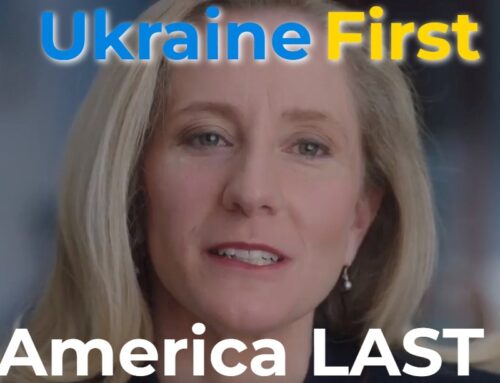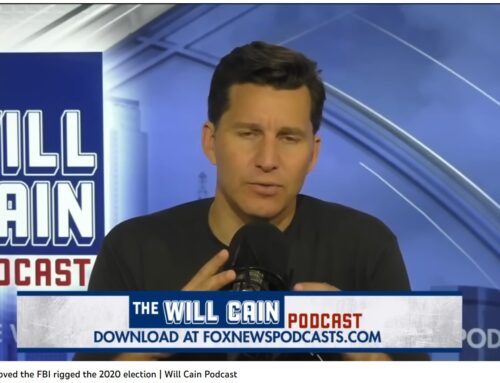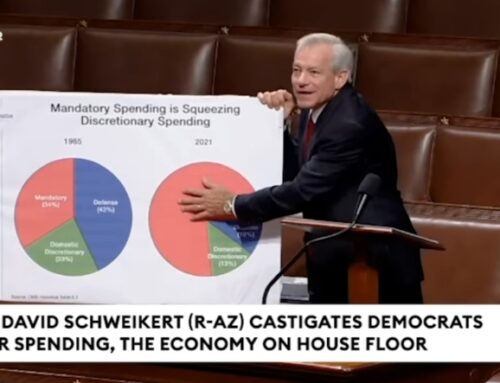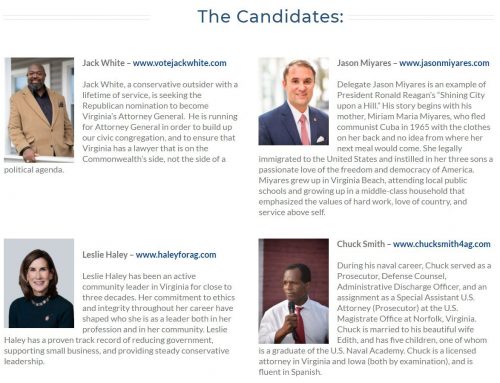On Friday January 28, I spent several hours in a packed General Assembly Committee Room. Members of the Immigration Subcommittee listened to numerous supporters and opponents, often commenting themselves as they considered 16 separate pieces of immigration-related legislation.
The general intent of these bills pertains to 1) taking meaningful steps to address the rapidly growing problem of illegal immigration in the Commonwealth by requiring confirmation of legal presence, and 2) assuring that Virginia’s increasingly scarce resources are accessible to citizens and legally present aliens. Mechanisms proposed by these bills included the mandatory use of the Federal E-Verify system in employee hiring, collecting data on the immigration status of K-12 students and their parents, enabling Virginia law enforcement personnel to help federal authorities enforce immigration laws, and denying illegal aliens admission to state institutions of higher learning by determining the immigration status of applicants.
I listened to opposing commentary with interest, and have added my own thoughts:
1. One person, an attorney no less, stated that the admission of non-citizens to state colleges has no adverse impact on a) taxpayers or b) legally-present applicants applying for increasingly limited available slots.
a. Asserting that tuition paid by illegally present non-citizens covers costs is, at best, misleading. Over and above tuition revenues, Virginia taxpayers pay over $10,000 per full-time student enrolled in four-year colleges.
b. Each semester, great numbers of legally present, academically qualified Virginia applicants are denied limited slots at state-funded schools. One current issue is the limiting of out-of-state students to 25% of slots, allowing in-state students more access to the state-subsidized colleges. Each of these groups consists of legally-present persons, period. There should be no slots available for non-citizens.
It must be mentioned that this same attorney-witness was asked to comment on the logic of adding non-citizens to the Commonwealth’s fiscal obligations. He actually responded that a national Hispanic attorney’s organization had lauded California for legislating that any person attending a California high school for three years will be given in-state preference when enrolling at state-funded schools. California, the world’s eighth largest economy, owes a staggering $365 billion and outspends annual revenues by $150 billion. Is this an example for Virginia to emulate, or are Virginians best served by acting upon facts clearly in evidence?
2. Most cited the plight of college-aged students brought to America as toddlers, making clear their view that Virginia taxpayers must take responsibility for their dreams, hopes and humanity. These individuals are referred to as “The Dreamers,” innocents who do not deserve to suffer as a result of decisions made decades ago by others.
Virginia is not obligated to underwrite past willful actions of parents who placed their own children in untenable future circumstances. Illegally-present individuals took a calculated risk in coming to America. Ignoring the legal processes available, they placed themselves and their loved ones in very real jeopardy. Public fiscal policy is not a mechanism for offsetting individual consequences, and ignoring this reality will bring to Virginia the same outcome currently faced by Greece, Spain, California and economies the world over.
3. Opponents to using E-verify objected to the clerical burden of reporting requirements, as well as the limitations of Federal databases. Several business groups seemed to assert that, given the hassle and imperfections of proposed remedies, they were unwilling to take part in any effort to reduce Virginia’s investment in illegally present non-citizens.
This argument cannot be taken seriously at any level. These very individuals and groups are silent when these same concerns are raised regarding Obamacare. Federal law enforcement strategy is clearly based upon a political strategy aimed at garnering the Hispanic vote. For Hispanic illegal aliens to cite this very neglect as a reason to expect increased preference over Americans is beyond brazen. Businesses need to be made aware that, as politicians court this demographic by spending public dollars, it is Virginia taxpayers that truly live the more complex burden of over-regulated lives.
The revelations of recent years have taught us that ignoring fact and acting on fact are not equally responsible courses of action. Adroitly finessing legal and fiscal realities to suit some current purpose is neither clever nor caring. Taking this path for decades has passed to our children and grandchildren a crushing burden of shameful consequence.
Virginia has colossal fiscal issues building, many of which involve heart-wrenching individual needs. Our current obligations require harsh measurement against actual necessity, and many will face deep cuts not only in the near future, but for many decades to come.
Our budgetary consequences have now met with the past expectations of those who assumed ideal outcomes from past risky decisions. We are now told that we are required to absorb increasingly more of others’ consequences, following the lead of numerous failed experiments across America.
My support of increased consideration for legal citizens is not based upon any disregard for those who risked much with no assurance of a good outcome. My support of these bills is based upon my responsibility to those whose futures I am obligated to consider first. There are not sufficient resources to meet these primary needs, not even close. Yet, I am responsible for acting on fact, accepting the consequences of past poor decisions and asking my children and grandchildren to share in those consequences. I fully expect others to do the same.





